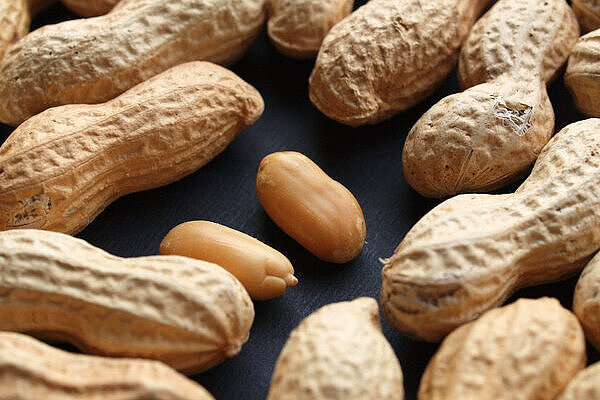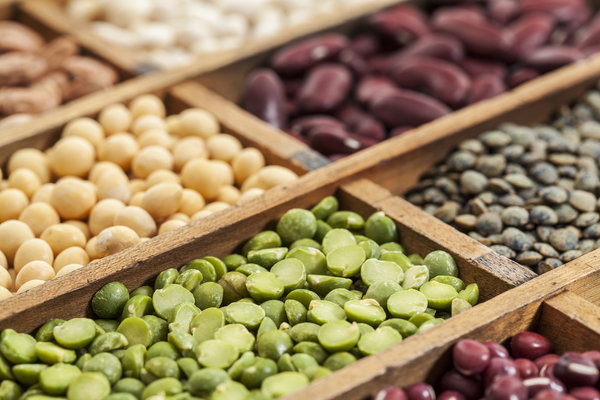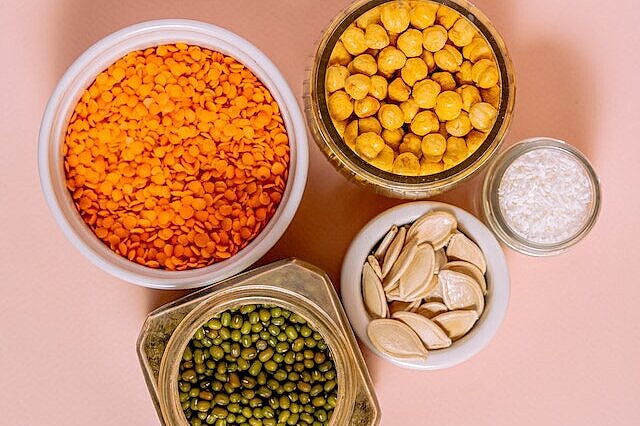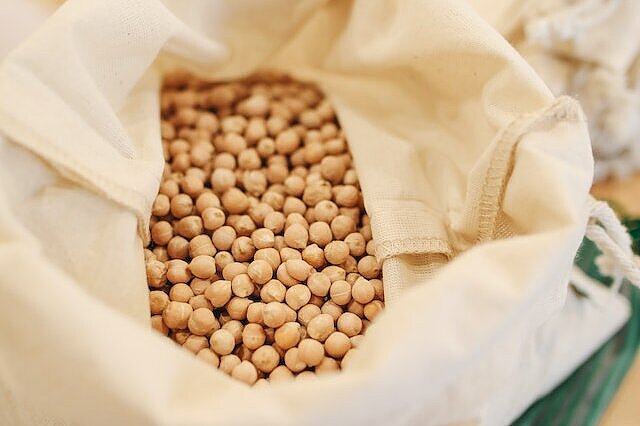Peas
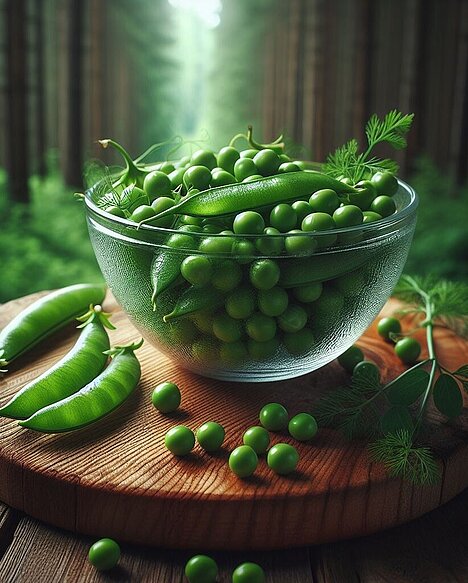
Peas are small green pulses that belong to the legume family. They are rich in protein, fiber, vitamins and minerals and can be a healthy addition to your dog's diet. But as with any food, there are a few things to consider before offering peas to your four-legged friend. In this article, you'll find out which peas are suitable for dogs, what their advantages and disadvantages are and how best to prepare them.
Which peas can my dog eat?
There are different types of peas that you can give your dog, such as
- Green peas: These are the classic peas that you can buy fresh, frozen or dried. They are safe for dogs as long as they are not seasoned or salted.
- Sugar snap peas: These are the peas that are still in the pod. They are also safe for dogs, but only when fresh, defrosted or frozen. You should avoid canned peas, as they can often contain additional spices such as garlic and onions, which are extremely harmful to all dogs.
- Pea flakes: These are dried and ground peas that you can use as a food additive. They are easily digestible and have a high nutritional value.
What are the benefits of peas for dogs?
Peas have many positive properties for dogs, such as
- They are a good plant-based source of protein that can boost your dog's muscles and immune system.
- Theycontain fiber, which can aid digestion and regulate blood sugar levels.
- They provide important vitamins, such as vitamins A, C, K and B complexes, which are important for your dog's eyes, skin, bones and nervous system.
- They contain minerals such as iron, calcium, magnesium, zinc and copper, which are important for your dog's blood formation, teeth, muscles, wound healing and immune system.
What are the disadvantages of peas for dogs?
Although peas are healthy, they are not suitable for every dog. There are some potential disadvantages you should be aware of, such as:
- Peas contain tannin, a natural plant substance that can cause constipation in large amounts.
- Peas contain oligosaccharides, a type of sugar that can cause bloating and diarrhea if eaten raw.
- Peas have a high calorie content, which can lead to obesity if eaten in excess.
- Peas are not suitable for dogs that suffer from kidney problems because they increase the phosphorus content in the blood, which can aggravate the condition.
How do I prepare peas for my dog?
If you want to give your dog peas, you should follow some tips to give him the best of this vegetable:
- Cook the peas in water without using salt, spices or butter. This will make them softer and easier for your dog to digest.
- Only give your dog a small amount of peas, about one tablespoon per 10 kg of body weight. This is enough to provide him with the nutrients without overfeeding him.
- Mix the peas with your dog's normal food or give them as a treat between meals. This way you can add peas to his diet for variety.
- Use pea flakes as a food supplement if you don't have fresh or frozen peas to hand. They are practical and have a high nutritional value.
Peas are a healthy and tasty vegetable for dogs, which you can offer them in moderation. They provide him with many important nutrients that can promote his well-being. However, make sure that you only use suitable peas and prepare them correctly to avoid possible side effects.
Properties 7
Are you looking for other ingredients with a specific property?
Just click on them to find more.
If you notice any signs of hypersensitivity or poisoning in your dog, you should see your vet immediately. We are not a substitute for a vet, but we try to be as accurate as possible. Every dog reacts differently and we recommend you get a second opinion or consult your vet if in doubt.
Stay healthy and take good care of your four-legged friend!😊
Similar to Peas
The peanut is a plant from the legume family and originally comes from South America. The fruits of the peanut are seeds that grow in a hard shell. This shell is often referred to as a nut, although...
Legumes can have several benefits for your dog's health and well-being. Here are some of them: Legumes can be a good addition to a meat-based diet as they provide valuable plant-based proteins....
Lentils are the seeds of plants from the papilionaceous family. There are different varieties of lentils, which differ in shape, color and taste. The best known are red, green and brown lentils....
The short answer is yes, but only cooked and in moderation. When raw, chickpeas contain the toxic substance phasin, which causes the red blood cells to clump together and can lead to diarrhea,...
